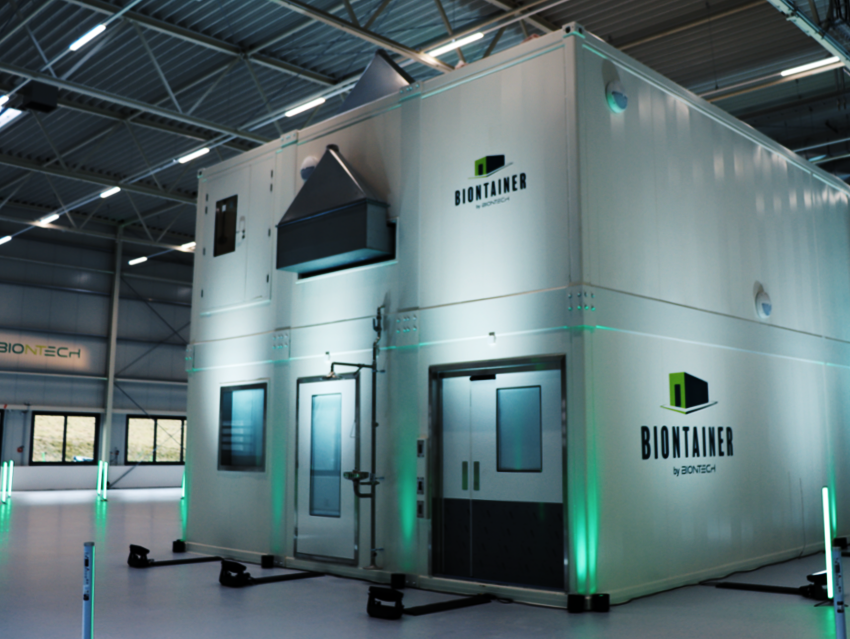BioNTech introduces the BioNTainer, the first modular container-based mRNA production facility to support scalable vaccine production in Africa. The BioNTainer consist of either an active ingredient module or a formulation module. Each module consists of six ISO-sized containers (2.6 m x 2.4 m x 12 m). Each BioNTainer is a clean room equipped with state-of-the-art production solutions. Together, two modules require 800 m² of space. The company says this enables mRNA vaccine production in large quantities (mRNA production and formulation). Fill-and-finish will be provided by local partners.
The BioNTainer will be equipped to produce a range of mRNA-based vaccines targeted to the needs of the African Union member states, such as Pfizer-BioNTech’s COVID-19 vaccine and BioNTech’s malaria and tuberculosis vaccines. The latter are not yet approved.
Construction of BioNTech’s first mRNA production facility in the African Union is expected to begin in mid-2022. The first BioNTainer is expected to arrive in Africa in the second half of 2022. Manufacturing in the first BioNTainer is expected to begin approximately 12 months after the modules are delivered to their final location in Africa. The company expects to deliver BioNTainers to Rwanda, Senegal, and potentially South Africa in close coordination with the respective country and the African Union.
The company will be responsible for supplying and installing the modules, while local organizations, agencies, and governments will provide the necessary infrastructure. Partners in Ghana and South Africa could support manufacturing with fill-and-finish capabilities. BioNTech will work closely with local authorities to ensure compliance with relevant regulatory procedures of national regulatory authorities in each partner country, and will also coordinate with relevant continental and international agencies as appropriate
BioNTech will initially staff and operate the facilities to support the safe and rapid start of the production in compliance under stringent good manufacturing processes (GMP) and prepare for the transfer of know-how to local partners to enable independent operations. Vaccines produced in these facilities will be for domestic use and export to other African Union member states at a not-for-profit price.
- BioNTech SE, Mainz, Germany



